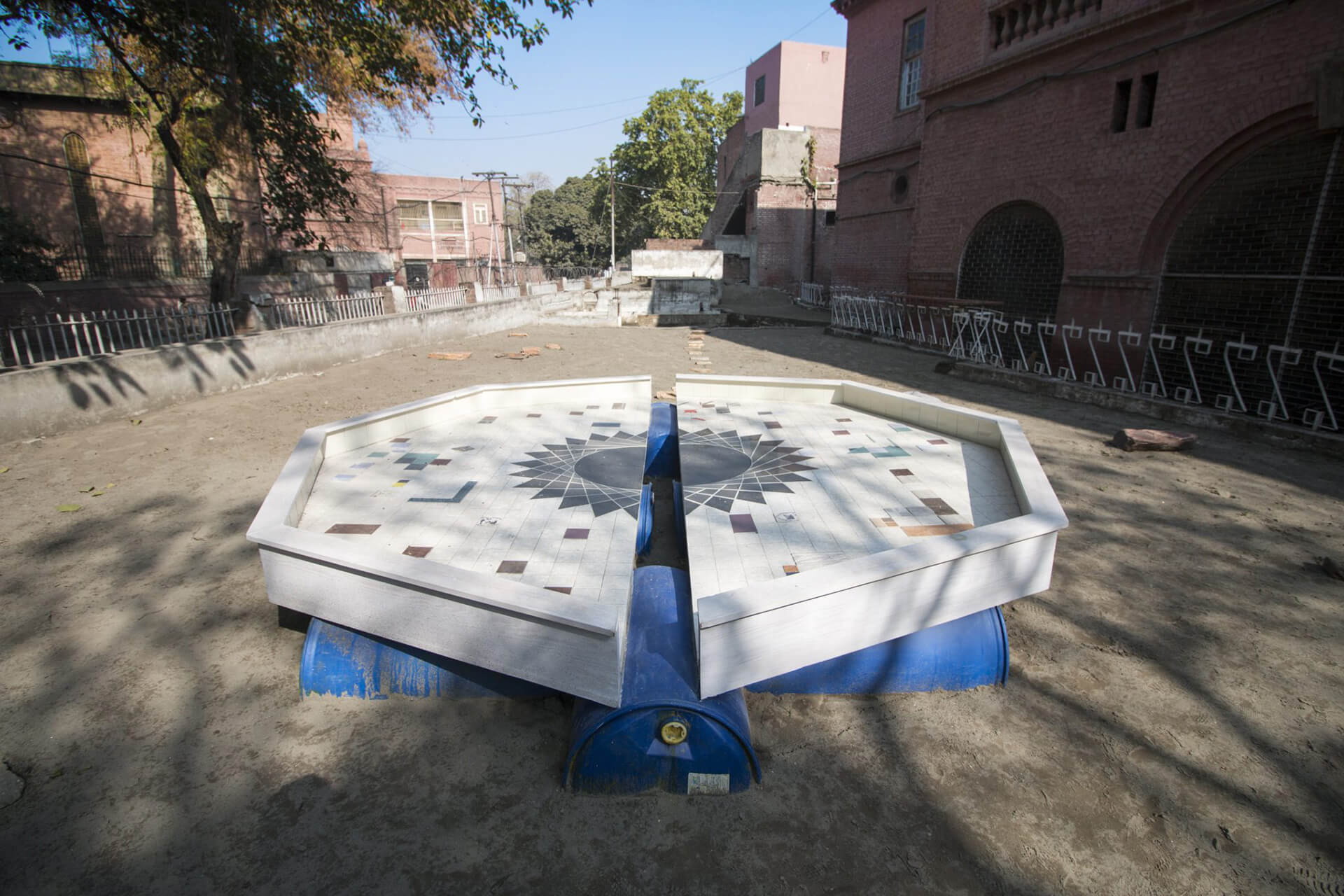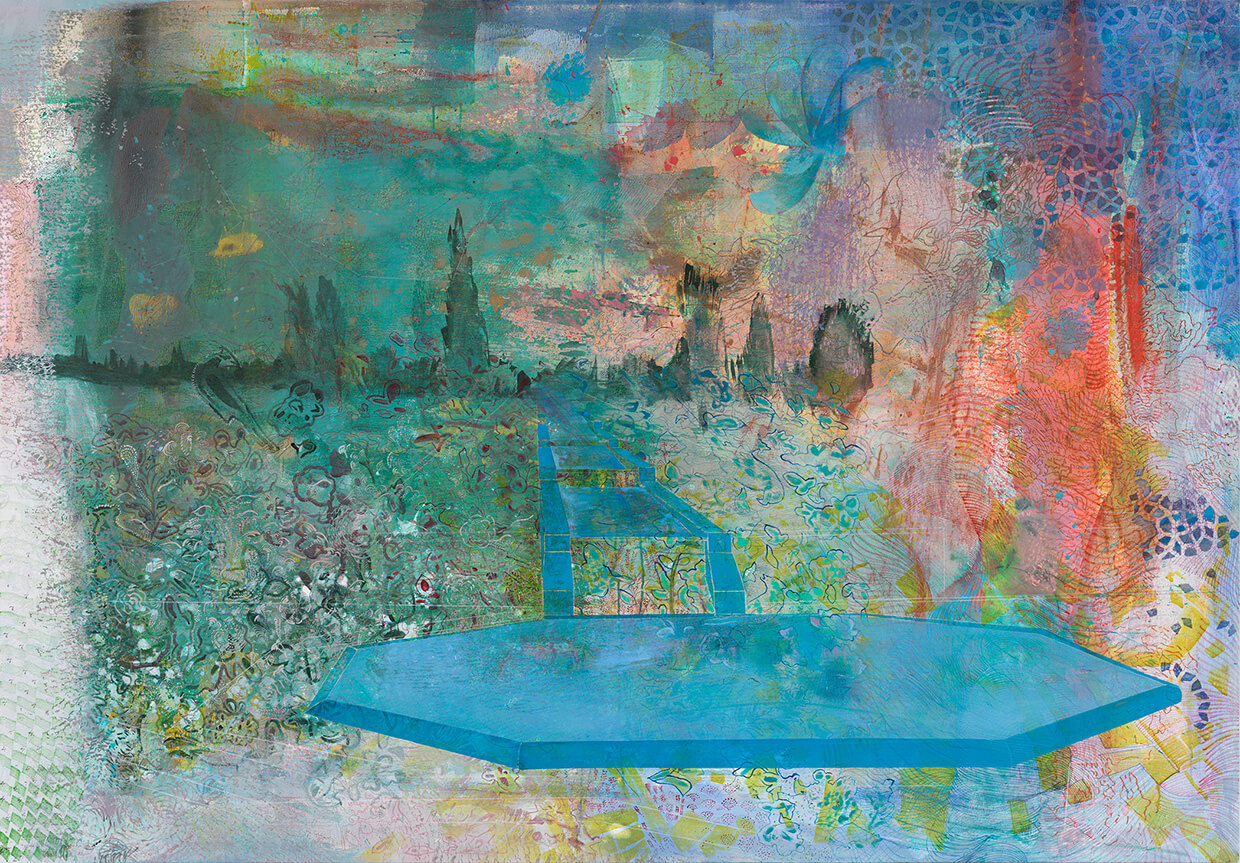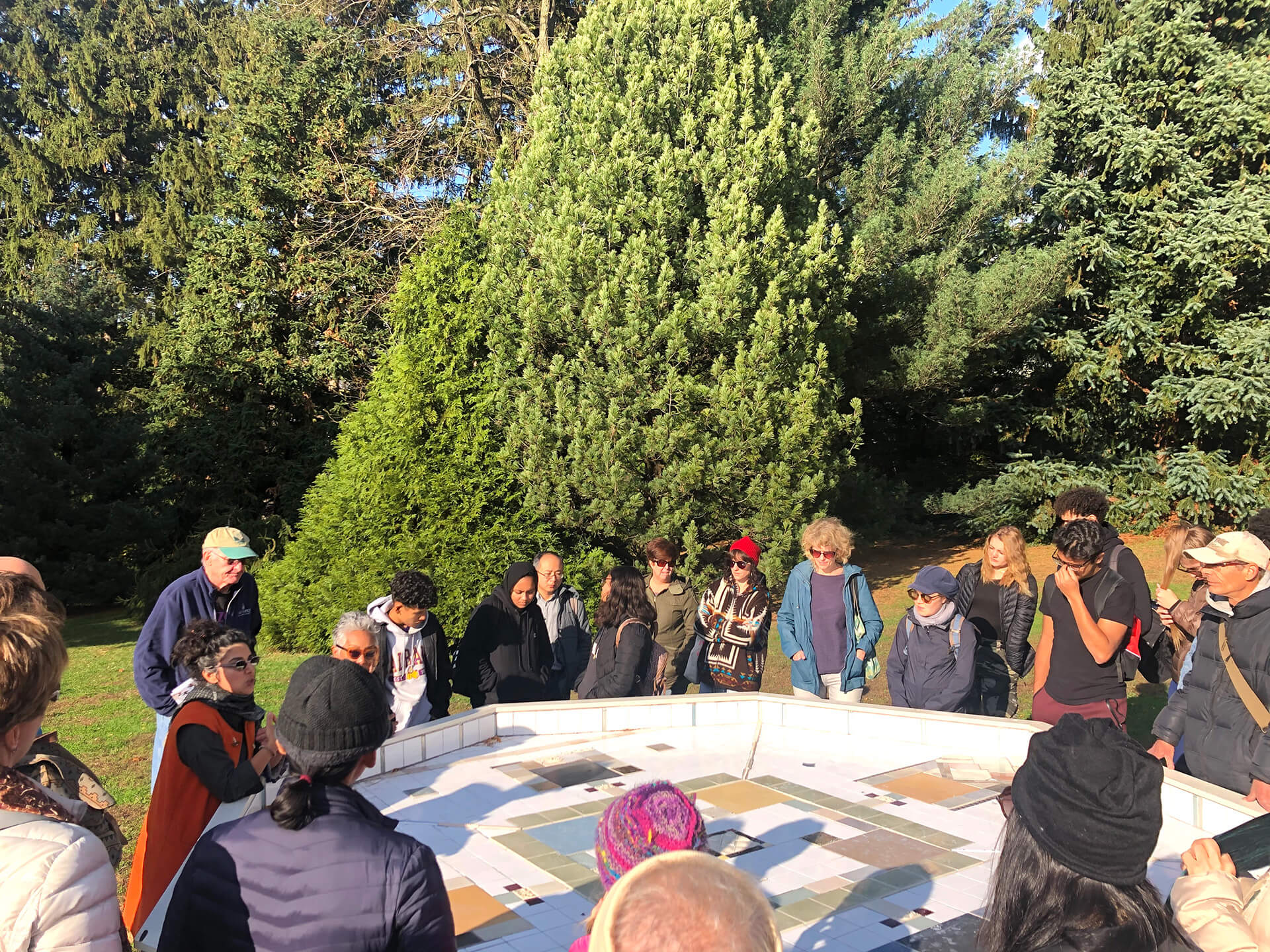The Playground Project on reimagining childhood, risk and public spaces
by Aarthi MohanOct 07, 2025
•make your fridays matter with a well-read weekend
by Shailaja TripathiPublished on : Nov 20, 2020
As a child, Bahar Behbahani played in the exquisite Persian Garden of Tehran, the city of her birth. Today, as an artist, Bahar seeks them out for stories and history. Her meditations on Persian Garden have emerged as paintings, videos, and installations and now a public art project ‘Ispahan Flowers Only Once’.
Brooklyn-based Behbahani is now working towards building a communal Persian Garden in New York. Through a grant by the Creative Capital, an organisation that supports artists, Behbahani will replicate the Persian Garden design, its flora and philosophy. A series of performances, conversations, screenings and readings will activate the space and engage the public. Elaborating it further, the Iranian artist says, “Persian Gardens are a paradoxical oasis, both able to awe with its beauty and lush vegetation within the harsh climate and hold deep complicated histories associated with colonial knowledge and domination. Inherently this project will be creating a space of hospitality, resistance and resilience. I am imagining it more as a hub for activism and healing; a home for all marginalised, mediated, untold, and less celebrated stories. The process of the project fascinates me more than finishing it. That’s how sometimes I also call it a growing sculptural lab”.

Behbahani grew up in Tehran. She pursued bachelors and masters in fine arts in Iran and shifted to the US in the early 2000s where she began to explore Persian Garden through the layers of memory and loss. In her art, like Let the Garden Erum Flourish, Garden Coup, The Garden of Heart's Delight and installation All Water has Perfect Memory, the gardens came to occupy the centerstage. Researching on the subject, Behbahani came across the writings of Donald Wilber, who was an expert in Persian architecture and gardens. He was also a secret agent of the CIA (Central Intelligence Agency) who reportedly planned the 1953 coup in Iran to overthrow Iranian prime minister Mohammad Mosaddegh. These revelations added more complexities to her art.

The artist, who has recently been awarded Painters & Sculptors Grant 2020 from the Joan Mitchell Foundation, explains, “The research for Persian Gardens started seven years ago; I began looking at geography, history, art, and literature in relation to Persian gardens. I soon realised that the subject has more to do with geopolitics than anything else and that Persian history reflects a history of colonialism”.
The Persian Garden is a landscaped garden that is divided into four quarters. Its architecture plays with the elements of water, plants, trees and sky. They are meant for recreation and relaxation. Persian Garden - a collection of nine gardens in Iran, has been declared as UNESCO’s World Heritage Site.
The curious title Ispahan Flowers Only Once piques interest. Ispahan is a type of rose which takes its name from Isfahan, a city in Iran. The artist reveals, “I titled this garden project Ispahan Flowers Only Once to engage my audience and the visitors of the garden to think critically about historiography in tandem with pop culture centering the notion of native and immigrant flora. Ispahan is a damask rose that was introduced to Europe in 1832. It produces very full old-fashioned pink flowers with dark pink centers in clusters that are deeply fragrant with no repeat blooming. It is very winter hardy, part shade tolerant and poor soil tolerant. Very disease resistant.
The rose is very symbolic in the project but the garden itself grows many other plants and flora, which will be planted by immigrants, historians, thinkers, and marginalised communities of people.”

Over the years Behbahani has delved into Persian Gardens in detail. She has a treasure trove of archival materials related to Persian Gardens. Her probe raised several questions in mind. “By exploring the history of seed trading in Persia through the Silk Road, I came to the realisation that there are not many clear sources about the origin of plants and seeds. That grey area in the western historiography is the stimulation for my work, particularly fascinating to me is the rose flower. Where is the original rose habitat? Why do we call it a French rose or British rose as a novelty while the seed of roses roots back to Persia? How did the path change? Who made the most economical benefit out of it? What properties make it native?”
The pandemic has made the artist reimagine the public art project. “Persian Garden project has been a goal of mine for many years and now I strongly feel the need of this garden as a living project standing on the ancestral knowledge to sustain the momentum of justice for all. Currently I am looking for a socially-conscious collaborator to provide a home for the garden to transform properties small or large into this growing sculptural lab to connect people and communities together for more environmental and climate justice possibilities”.
As someone who is interested in the social history of plants, body memory, and its connectedness to climate exile and water management, Behbahani hopes the project will become a platform for other artists, thinkers, and educators to come together and contemplate collectively.
by Maanav Jalan Oct 14, 2025
Nigerian modernism, a ‘suitcase project’ of Asian diasporic art and a Colomboscope exhibition give international context to the city’s biggest art week.
by Shaunak Mahbubani Oct 13, 2025
Collective practices and live acts shine in across, with, nearby convened by Ravi Agarwal, Adania Shibli and Bergen School of Architecture.
by Srishti Ojha Oct 10, 2025
Directed by Shashanka ‘Bob’ Chaturvedi with creative direction by Swati Bhattacharya, the short film models intergenerational conversations on sexuality, contraception and consent.
by Asian Paints Oct 08, 2025
Forty Kolkata taxis became travelling archives as Asian Paints celebrates four decades of Sharad Shamman through colour, craft and cultural memory.
 surprise me!
surprise me!
make your fridays matter
SUBSCRIBEEnter your details to sign in
Don’t have an account?
Sign upOr you can sign in with
a single account for all
STIR platforms
All your bookmarks will be available across all your devices.
Stay STIRred
Already have an account?
Sign inOr you can sign up with
Tap on things that interests you.
Select the Conversation Category you would like to watch
Please enter your details and click submit.
Enter the 6-digit code sent at
Verification link sent to check your inbox or spam folder to complete sign up process



by Shailaja Tripathi | Published on : Nov 20, 2020
What do you think?